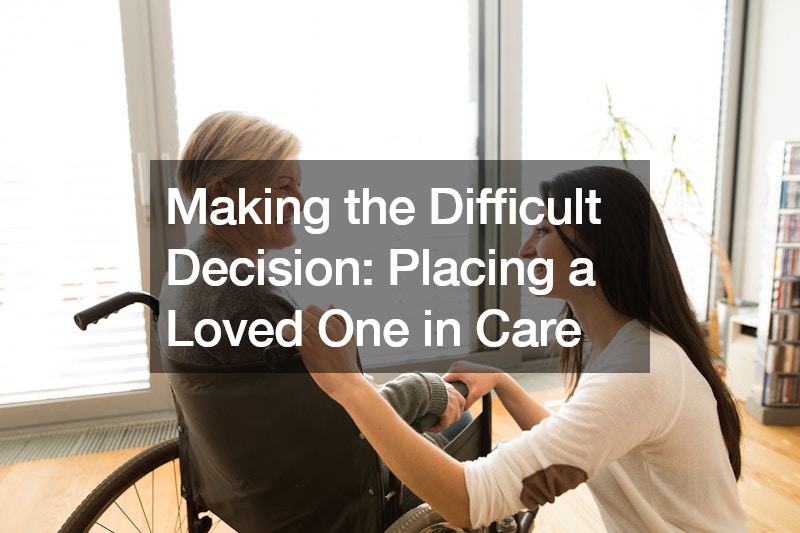For many families, the journey of caring for an aging loved one reaches a critical juncture when the question arises: Can they continue to live safely at home? It’s a moment fraught with emotion and complexity, one that requires careful consideration and informed decision-making.
Recognizing the Signs
The decision to transition a loved one into elderly care often hinges on signs indicating that home is no longer the safest environment. These signs can vary widely, from physical limitations such as frequent falls to cognitive challenges like medication mismanagement.
It’s crucial for family members to be vigilant and observant, noticing any changes in their loved one’s ability to maintain their daily routines and ensure their own well-being.
The Role of Geriatric Care Managers
Navigating the landscape of elderly care can be overwhelming, which is where geriatric care managers can offer invaluable assistance. These professionals are adept at assessing the needs of aging individuals and guiding families through the process of finding appropriate care solutions. Whether it’s coordinating medical appointments, evaluating care facilities, or advocating for the best interests of the elderly, geriatric care managers serve as knowledgeable allies in the journey of caregiving.
Exploring Care Options
When it comes to elderly care, there is no one-size-fits-all solution. Families must weigh various factors, including the level of assistance needed, financial considerations, and personal preferences. Nursing homes, assisted living facilities, and in-home care services each offer distinct benefits and considerations. Nursing homes provide comprehensive medical care and supervision, while assisted living facilities offer a more independent lifestyle with assistance available as needed. In-home care services allow seniors to remain in familiar surroundings while receiving personalized care and support.
Benefits of Considering Placing a Loved One in Elderly Care
While the decision to transition a loved one into elderly care can be emotionally challenging, it also offers several potential benefits:
- Specialized Care: Care facilities are staffed by trained professionals who specialize in meeting the unique needs of elderly individuals. From medical care to assistance with daily activities, residents receive comprehensive support tailored to their requirements.
- Socialization Opportunities: Loneliness and social isolation can have detrimental effects on seniors’ mental and emotional well-being. Elderly care facilities provide residents with opportunities for social interaction, fostering friendships and a sense of community that can enhance their quality of life.
- Safety and Security: Many elderly individuals face safety risks when living alone, such as falls, medication errors, or emergencies. Care facilities offer round-the-clock supervision and assistance, ensuring that residents receive prompt attention in case of any medical or safety concerns.
- Access to Amenities and Activities: Elderly care facilities often offer a wide range of amenities and recreational activities designed to promote residents’ physical, mental, and emotional health. From fitness programs to arts and crafts classes, residents have opportunities to engage in meaningful activities and hobbies that enrich their lives.
- Respite for Family Caregivers: Placing a loved one in elderly care can provide much-needed respite for family caregivers who may be struggling to meet their loved one’s complex care needs while juggling other responsibilities. By entrusting their loved ones to professional caregivers, family members can alleviate their stress and burnout while ensuring their loved one’s well-being.
Addressing Financial Considerations
Cost is a significant factor to consider when exploring elderly care options. While Medicare may cover certain aspects of short-term care following a hospital stay, long-term care expenses are typically the responsibility of the individual or their family. Nursing home costs can range from hundreds to thousands of dollars per day, depending on the level of care required and the amenities offered. Families need to research financial assistance programs, explore insurance options, and plan to ensure they can afford the care their loved one needs.
Challenging Misconceptions
Despite efforts to improve the quality of elderly care, misconceptions about care facilities persist. Families may be swayed by impressive amenities or aesthetics without considering the quality of care provided. It’s crucial to look beyond surface appearances and prioritize factors such as staff-resident interactions, individualized care plans, and overall resident satisfaction. By challenging stereotypes and advocating for high standards of care, families can help ensure that their loved ones receive the respect, dignity, and attention they deserve in their later years.
Final Thoughts
Deciding to place a loved one in elderly care is never easy, but it is often a necessary step in ensuring their safety, well-being, and quality of life. By remaining vigilant, seeking guidance from professionals, exploring all available options, and prioritizing the needs and preferences of their loved ones, families can navigate this challenging journey with compassion and confidence. In the end, the goal is to provide the best possible care and support for those who have cared for us throughout our lives.
.

